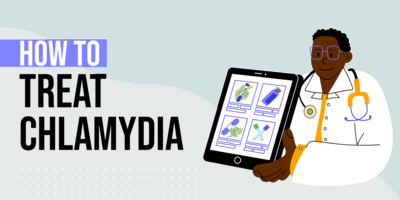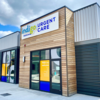
How to Treat Chlamydia
Chlamydia is a bacterial infection that is spread by sexual contact, according to the CDC. It is one of the most...
Read moreHelp patients book appointments with you on Solv. It's free!
20 instant-book locations







No more surprise bills. Solv is committed to making getting healthcare as easy as buying groceries at the store, including knowing the price of care upfront.

No more surprise bills. Solv is committed to making getting healthcare as easy as buying groceries at the store, including knowing the price of care upfront.

No more surprise bills. Solv is committed to making getting healthcare as easy as buying groceries at the store, including knowing the price of care upfront.

No more surprise bills. Solv is committed to making getting healthcare as easy as buying groceries at the store, including knowing the price of care upfront.

No more surprise bills. Solv is committed to making getting healthcare as easy as buying groceries at the store, including knowing the price of care upfront.

No more surprise bills. Solv is committed to making getting healthcare as easy as buying groceries at the store, including knowing the price of care upfront.

No more surprise bills. Solv is committed to making getting healthcare as easy as buying groceries at the store, including knowing the price of care upfront.
Help patients book appointments with you on Solv. It's free!
According to the CDC, everyone between the ages of 13 and 64 should get tested for HIV at least once as part of routine health care. However, those at higher risk should get tested more often. This includes people who have had sex with an HIV-positive partner, those who have had more than one partner since their last HIV test, people who inject drugs and share needles, and those who have exchanged sex for drugs or money.
Getting tested for HIV is crucial for several reasons. First, it allows individuals to know their status and take appropriate steps to protect their health and the health of others. Early detection of HIV can lead to early treatment, which can significantly improve long-term health outcomes and reduce the risk of transmission. According to the CDC, people who are aware of their HIV status can live healthier, longer lives compared to those who are unaware.
Urgent care and walk-in clinics provide convenient, same-day HIV testing services. Smart Care in nearby Seattle is a highly-rated option with a 4.57 rating based on 7 reviews. You can book same-day and next-day testing appointments at Smart Care through Solv’s website and mobile app.
Primary care providers also offer HIV testing. It's a good idea to discuss your risk factors with your primary care provider, who can guide you on how often you should get tested.
Community health centers often provide free or low-cost HIV testing. These centers are a valuable resource, especially for those without insurance or with limited financial resources.
At-home HIV testing kits are another option. These kits can be purchased online or at a local pharmacy, allowing individuals to test themselves in the privacy of their own homes.
Data on the specific prevalence of HIV in Renton, WA is not readily available. However, Renton is part of King County, which has seen a steady decrease in new HIV diagnoses over the past decade, according to the CDC. This trend is encouraging but underscores the importance of continued testing and prevention efforts.
Risk factors for HIV in Renton mirror those at the national level. These include unprotected sex, multiple sexual partners, and sharing needles for drug use. It's important to note that while these factors increase the risk of HIV, the virus can affect anyone, regardless of lifestyle or behavior.
In addition to HIV, other STDs such as gonorrhea, chlamydia, syphilis, and hepatitis are also present in Renton. As with HIV, testing is crucial for early detection and treatment of these diseases. Testing for these STDs can often be done at the same time as HIV testing, providing a comprehensive overview of one's sexual health.
Solv has strict sourcing guidelines and relies on peer-reviewed studies, academic research institutions, and medical associations. We avoid using tertiary references.
Everyone between the ages of 13 and 64 should take an HIV test at least once in their lives. Some people are more likely to get HIV and should be tested more regularly. Those who have had sex with an HIV-positive partner, those who inject drugs, sexually active gay men, and those who have unprotected sex are all included. You should get checked every 6-12 months if you have any of these risk factors.
Antibodies created by your body in reaction to the virus are examined in HIV tests. A blood test or a sample of cells obtained from the inside of the cheek can be used to do this. After that, the sample is transported to a lab, where a technician will look for antibodies.
It can take a long time for your body to build enough antibodies for an HIV test to detect the illness if you become sick. It may take 3-12 weeks for your blood to contain adequate antibodies. Even if you have HIV, you could have a negative test result during this time.
Because the sample must be sent to a laboratory for investigation, most HIV test results might take anywhere from a few days to several weeks. On the other hand, some Renton clinics or doctor's offices may offer rapid HIV testing, which can deliver a diagnosis in as little as 20 minutes. Rapid HIV testing involve a little sample of blood or fluid obtained from the mouth. You'll need a follow-up blood test to confirm the diagnosis if a fast test comes up positive.
A variety of factors influence the cost of an HIV test, including the type of test you receive, the location where you are tested, and whether or not you have health insurance. HIV testing may be provided for free or at a low cost by some clinics or health authorities. If you're a college student, you might be able to get free HIV tests through your school.
The majority of insurance coverage cover HIV testing. The Affordable Care Act mandates that all new health plans provide free HIV testing for those aged 15 to 65. If you have any doubts about what is covered under your individual health plan, you can always call your insurance company or go to their website.
Many Renton health clinics, doctor's offices, and the health department offer HIV testing. Some pharmacies with on-site clinics may also be able to give HIV testing. Even though some clinics accept walk-in appointments, making an appointment ahead of time will save you time and ensure that you receive your test on the same day.
Yes, Solv offers same-day and next-day HIV testing appointments. We collaborate with thousands of healthcare providers across the country to make it easier for everyone to access the medical assistance they require quickly and conveniently. On our website, you can choose a physician near you and make an appointment right now.
Simply type "HIV test" and your location into our website's search box. You'll find a list of providers and their available appointment times on the next page. Fill out the form to arrange an appointment at a time and location that is convenient for you. Make certain that your appointment is for "HIV testing."
Although there are several home HIV tests available, not all of them are accurate or FDA-approved. For a home test, you'll need a swab from the inside of your mouth or a blood sample taken with a finger pricker. If you get a positive result on a home HIV test, you should see a doctor to confirm the diagnosis and start treatment.
Annual Wellness Exam in Renton
Chickenpox Vaccine in Renton
DOT Exam in Renton
Ear Wax Removal in Renton
Eye Exam in Renton
Flu Shot in Renton
Hepatitis Vaccine in Renton
Measles Vaccine (MMR) in Renton
Pap Smear in Renton
Physical Exam in Renton
Shingles Vaccine in Renton
Sinus Infection Treatment in Renton
Sports Physicals in Renton
Tetanus Shot in Renton
Typhoid Vaccine in Renton
Well-Woman Exam in Renton
Yellow Fever Vaccine in Renton
A1C Test in Renton
CMP Test in Renton
Chlamydia Test in Renton
Diabetes Test in Renton
Gonorrhea test in Renton
H Pylori Test in Renton
HIV Test in Renton
Hepatitis test in Renton
Herpes Test in Renton
Mono Test in Renton
Pregnancy Test in Renton
STD Testing in Renton
Strep Test in Renton
Syphilis test in Renton
TB Test in Renton
Thyroid Test in Renton
Trichomonas Test in Renton
Vitamin D Test in Renton
Tips, advice, news—your resource to stay healthy and safe while improving your experience with healthcare providers when you need them.